Lifestyle Changes to Help Glaucoma
Featuring
Shivani Kamat, MD
Assistant Professor of Ophthalmology, University of Texas Southwestern Medical Center
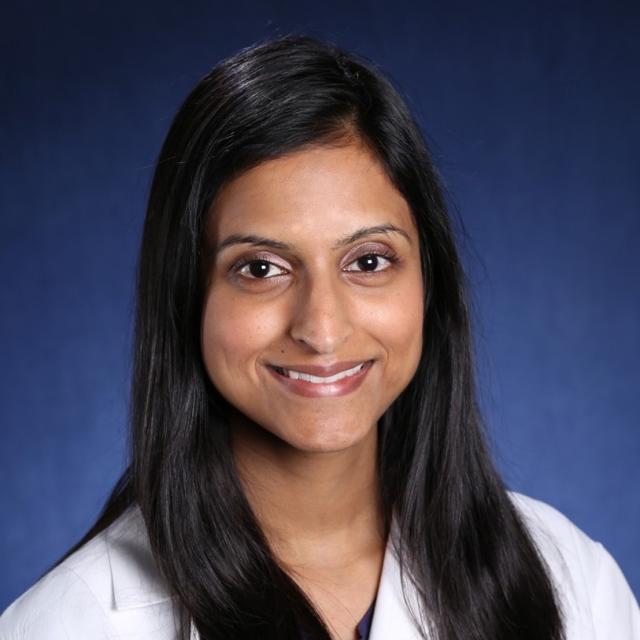




Shivani Kamat, MD
Assistant Professor of Ophthalmology, University of Texas Southwestern Medical Center

This Glaucoma Chat featured Dr. Shivani Kamat, Assistant Professor of Ophthalmology, and a glaucoma surgeon at the University of Texas Southwestern Medical Center. Dr. Kamat discussed daily habits that may help manage glaucoma such as exercise routines, a healthy diet, sleeping position and more.
Download English Transcript PDF Download Spanish Transcript PDF
MS. DIANA CAMPBELL: Hello, and welcome to the BrightFocus Glaucoma Chat. My name is Diana Campbell, and I’m pleased to welcome you to the Chat today. BrightFocus Glaucoma Chat is a program in partnership with the American Glaucoma Society and is designed to provide people living with glaucoma, and the family and friends that support them, with information provided by glaucoma experts. The American Glaucoma Society counts leading glaucoma specialists in the country in their membership, and we’re looking forward to hearing them discuss many topics about glaucoma during this Chat series. Today’s topic is “Lifestyle Changes to Help Glaucoma.” BrightFocus Foundation funds some of the top scientists in the world who are working to find better treatments, and ultimately cures, for glaucoma, macular degeneration, and Alzheimer’s disease, and we do events like today’s Chat to get the latest news from science as quickly as possible to families that are impacted by these diseases. You can find much more information on our website, www.BrightFocus.org.
Now, I’m pleased to introduce today’s guest, Dr. Shivani Kamat, who is an Assistant Professor of Ophthalmology and Glaucoma, and an anterior segment surgeon at the University of Texas Southwestern Medical Center. She specializes in complex glaucoma, anterior segment disease, minimally invasive glaucoma surgery, and cataract surgery and has extensive experience in medical, laser, and surgical treatment of glaucoma, including combined cataract and glaucoma procedures, as well as the latest glaucoma surgical devices and intraocular lens implant technology. Dr. Kamat has also been involved in major clinical trials to advance the field. Welcome, Dr. Kamat.
DR. SHIVANI KAMAT: Thank you so much. Thank you for having me. I’m so happy to be here.
MS. DIANA CAMPBELL: Well, we’re pleased you’re here, as well. So, let’s start with a quick note. While glaucoma is a group of eye diseases with multiple causes and contributions, the only currently FDA-approved treatments focus on reducing eye pressure. Today, we will discuss lifestyle modifications that may reduce the chances of vision loss. To start the conversation today, can you prevent glaucoma with a healthy diet and exercise?
DR. SHIVANI KAMAT: Well, that’s a good question. You won’t necessarily prevent glaucoma because glaucoma is caused by a variety of factors, and many of them are not in our control, like genetics. Healthy diet and exercise can help either decrease vision loss or decrease progression in glaucoma patients, so it won’t necessarily prevent it, but it can still help you.
MS. DIANA CAMPBELL: Great. Are there particular exercises or activities that may make glaucoma worse, or are there activities that one should avoid so their glaucoma doesn’t get worse?
DR. SHIVANI KAMAT: Yeah. In general, glaucoma is not significantly impacted by most activities. There are certain sub-types of glaucoma. For example, there is a type of glaucoma called pigmentary glaucoma that can be affected by very vigorous exercise. In that type of glaucoma, the eye gives off tiny little particles of pigment that can build up in the drainage system of the eye, and then that leads to difficulty in the drainage of fluid, and then that causes the eye pressure to go up. So, certain subtypes of glaucoma can be affected by vigorous exercise. Yoga is a very common type of exercise that people do, and it’s a great form of exercise, but actually there have been studies that have shown that the head stands that a lot of people do while practicing yoga can cause a significant increase in eye pressure, so people with severe glaucoma, in general, should try to avoid doing headstands. On the flip side, actually, there was a study out of India that showed that practicing meditation can be really beneficial for those with glaucoma. Forty-five minutes of mindful meditation was actually associated with a 5point decrease in pressure, so that is something that can actually be really helpful. Other studies have actually shown, in general, that exercise, like aerobic exercise—jogging, walking, anything that gets your heart pumping—can be helpful in glaucoma patients, particularly with slowing their visual field loss. Generally, things that are heart healthy, like exercise, etc., can overall benefit not just your body but your glaucoma.
MS. DIANA CAMPBELL: That’s great. That’s really interesting about the meditation.
DR. SHIVANI KAMAT: Yeah, I know.
MS. DIANA CAMPBELL: We had one other question. In terms of exercise in general, you said heart-healthy, and it sounds like headstands, obviously, significantly can increase the pressure. How about other inverted poses? I think, in particular, people have asked about downward-facing dog.
DR. SHIVANI KAMAT: Yeah, that’s a great question. I mean, if you could avoid things like just inverted poses—headstands was what was done in the paper, but yeah, downward dog, even—trying to avoid those kinds of positions would probably be ideal in somebody with severe glaucoma.
MS. DIANA CAMPBELL: Great. Thank you. I don’t know if sleeping’s considered an activity or not, but what about sleeping? Does the position you sleep in pose a risk?
DR. SHIVANI KAMAT: That’s a good question. We might see patients in clinics where one eye is consistently worse—getting worse—and we don’t always know why, and then you ask them, “Oh, what side do you sleep on?” Sometimes if people are face sleepers say it’s their left side that they sleep on; sometimes if they’re sleeping on their face, they can push on their eye while they’re sleeping, and that can increase the pressure, too. So, in theory, that could impact your glaucoma, but I would say in general, unless you’re sleeping on your eye like that, you don’t really need to worry too much about how you’re sleeping.
MS. DIANA CAMPBELL: Another thing we do a lot in this day and age is look at our smartphones or tablets all day long. How does screen time affect eye pressure, or does it affect eye pressure?
DR. SHIVANI KAMAT: It doesn’t. I mean, you won’t harm your glaucoma by any means by using your phone—you’re okay to do that.
MS. DIANA CAMPBELL: Great. The next question is about altitude. Do changes in altitude or in places of higher altitude make your eye pressure change if you’re traveling, for example?
DR. SHIVANI KAMAT: No, not really. I mean, in terms of just regular glaucoma, the altitude of where you’re at should not matter. In some special instances, like people who have had retina surgery, sometimes they get gas put in their eye afterwards—that’s a specific circumstance where the gas can expand if you’re in areas of higher altitude—and the pressure can go up in your eye, and that’s a problem. But otherwise, in general with glaucoma patients, it’s not a problem.
MS. DIANA CAMPBELL: Great. Are there other things that cause extreme changes to eye pressure that people should be aware of or any cause for concern?
DR. SHIVANI KAMAT: Well, with open-angle glaucoma, typically there aren’t sudden or extreme changes in pressure. I had mentioned something called pigmentary glaucoma a little bit ago. That’s a subtype of glaucoma, and some other secondary glaucomas due to exfoliation glaucoma, those glaucomas are known or notorious for having large fluctuations with their eye pressure—not necessarily sudden, but they can have wide fluctuations. Otherwise, open-angle glaucoma, you typically don’t get that. It’s more common to have sudden changes in eye pressure in somebody who has what’s called closed-angle glaucoma. In those cases, the drainage system of the eye can suddenly close off. It’s almost like a sink that gets clogged, and if you think about how water can build up in a sink fairly quickly if the drain is clogged, it’s the same concept. If the internal drainage system of the eye gets blocked or clogged for any reason, the fluid in the eye can build up rapidly and cause a problem. So, sudden changes to pressure and extreme changes to pressure are more of a hallmark of closed-angle glaucoma than open.
MS. DIANA CAMPBELL: That’s a wonderful analogy. That helps a lot.
MS. DIANA CAMPBELL: What about diet? Are there vitamins that can help the glaucoma patient?
DR. SHIVANI KAMAT: Yeah, that’s a great question. The shorter answer is “yes,” but there are vitamins that have become popular for macular degeneration—like the AREDS formula, the PreserVision® brand vitamins—and those are proven to help certain stages of macular degeneration, but there’s no real equivalent pill like that for glaucoma. Some people will just take eye vitamins thinking it will help glaucoma. It’s not going to hurt you, because at the end of the day they’re vitamins, but there’s no proof necessarily that that formulation is going to slow down glaucoma. There are studies that have shown that … again, this is talking about heart healthy. Leafy greens, like kale, can be helpful. There are some recent studies, actually, that studied nicotinamide—which is basically vitamin B3—and pyruvates, and it looked at the effects of those on glaucoma, and it found that oral administration of both led to improvement in visual fields, compared to those that got a placebo. So, that was really interesting and helpful because it showed short-term improvement and recovery for patients with glaucoma, but it doesn’t … we don’t have a lot of data yet to show any longer-term recovery, meaning: Do these vitamins truly reverse glaucoma damage or slow it down for the long term? We don’t know that yet, and there are studies that are in the works looking at that. But there is some early evidence that shows Vitamin B3 and pyruvates can be helpful, but right now we don’t have enough data to know long term if that can make a big difference.
MS. DIANA CAMPBELL: Sure, that makes sense. That’s really interesting that that research is coming along. I know it provides some comfort for folks with macular degeneration because they feel that they’re active and preventing that vision loss.
DR. SHIVANI KAMAT: I think that’s one of the hardest parts about glaucoma, is feeling helpless. You have to come in, you take your drops, and people do all that stuff, and they still get worse and—or they can potentially get worse—so feeling like you have some control, I think, is really helpful.
MS. DIANA CAMPBELL: I agree. That’s huge. Now, how about the things we drink? What about caffeine or alcohol? Do they have some effects?
DR. SHIVANI KAMAT: Yeah, these are all very commonly asked about and studied, as well. There’s not really a strong link between caffeine and glaucoma. Some recent studies have shown that drinking alcohol—particularly higher concentrations, for example, liquor versus beer—can be linked to glaucoma. And this study in particular was looking at a specific subtype called pseudoexfoliation glaucoma. We don’t know enough about the relationships to recommend decreasing alcohol and by how much, etc. We just know there is a link to increased alcohol concentration intake and this type of glaucoma. So, more to come with that. And there’s also—if we’re talking about lifestyle, like things like recreational activities like drinking and caffeine and alcohol, along those lines—there has been also studies with tobacco—with smoking—and there’s a large-scale study that found that smokers actually had higher pressures—eye pressures—compared to nonsmokers. And another study found that smoking actually could lead to greater damage of what’s called the nerve fiber layer, and those are some of the tissues that make up the optic nerve. So basically, it found that smoking could lead to damage of tissues that make up the optic nerve. Smokers tended to have an increased risk of developing glaucoma, and heavy smoking led to an even higher risk. Obviously, cutting down on smoking and quitting smoking is very, very difficult, but even decreasing the amount you smoke can really help the state of your glaucoma. So, it’s helpful for the entire body, of course—we already know that—but it can also help with glaucoma.
MS. DIANA CAMPBELL: Great. Thank you for that. I think—particularly with alcohol—I think that falls under the heart-healthy diet, as well, right?
DR. SHIVANI KAMAT: Yeah, exactly.
MS. DIANA CAMPBELL: Limited alcohol is the healthiest for your heart, too, so that’s a great guideline for people to remember, I think, to follow the heart-healthy lifestyle.
DR. SHIVANI KAMAT: Yeah. Basically, anything that helps the rest of your body in general has been proven to help your eyes, which I guess is common sense, but we have studies that prove that, which is really helpful.
MS. DIANA CAMPBELL: That is really helpful. Are blood pressure and eye pressure related?
DR. SHIVANI KAMAT: Not in the way that many people think. A lot of people think that if they have high blood pressure that it causes, or it can be linked to, high eye pressure, and they’re pretty independent, actually. One does not lead to the other. However, people with certain kinds of glaucoma can actually be really sensitive to low blood pressure, particularly at night, what we call nocturnal hypotension. That can predispose them to further optic nerve damage, so that is something important to talk about with your primary care doctor if you may be someone that has low blood pressure.
MS. DIANA CAMPBELL: Oh, that’s good information. I know you hear a lot in commercials on TV and that sort of thing about, “Talk to your doctor if you have glaucoma.” Why do certain medications have that disclaimer to talk to your doctor before you take them, and how does that interact with glaucoma?
DR. SHIVANI KAMAT: Most commonly, the medications that mention that are ones that impact or that can cause worsening of closed-angle glaucoma because certain medications, like certain antidepressants, antihistamines, they can alter the anatomy—the internal anatomy—of the eye. In somebody with open-angle glaucoma, it doesn’t really matter, but in somebody with closed-angle glaucoma, that alteration in anatomy can be critical, and it can lead to an attack, for example. So again, if someone has open-angle glaucoma, they don’t really need to worry if a medication says that. The caveat to that sometimes is steroid use—and this could be for open- or closed-angle glaucoma—but some patients, particularly glaucoma patients, can be really sensitive to steroids, which can be ointments, creams, Flonase injections—really any formulation of them. It can lead their eye pressure to go up, so if you think you’re going to be on a steroid for a prolonged period of time, I would discuss that with your eye care professional. But otherwise, medications that typically say, “Ask your doctor,” it’s particularly for people who have closed-angle glaucoma, so certainly I would run that by your doctor before taking anything, just in case.
MS. DIANA CAMPBELL: That’s great advice. I have a follow-up question from one of the previous questions regarding activity. If you suspect an activity that you are doing is affecting your eye pressure, what should you do? Or, I guess, my interpretation of that is: Can the person actually tell that there’s a change in their pressure?
DR. SHIVANI KAMAT: Oh, great question. Most commonly, no. Your eye pressure has to be really high, typically for … 40 or so for somebody to notice that there’s something going on, and that typically is in the form of eye pain, decreased vision, some people get light sensitive. But otherwise, a lot of times more subtle increases in eye pressure are not really noticed by the eye; normal pressure is 10–22, so it has to be significantly higher than that, typically, for people to notice. So, you probably won’t notice when you’re doing any activity that there’s a problem. If you have concerns, I would suggest asking the eye doctor because they know more of the intricacies of your eyes and how bad your glaucoma is, and they could help guide you. But generally speaking, it’s not something that you may pick up on, on a day-to-day basis.
MS. DIANA CAMPBELL: Right. So I suppose if you’re doing something that you’re concerned about, it’s something you should bring up with your eye care professional and discuss it with them.
DR. SHIVANI KAMAT: Exactly. I would do that.
MS. DIANA CAMPBELL: I have another interesting question here from somebody who’s listening. Are there eye exercises that can be done that might help?
DR. SHIVANI KAMAT: You know, unfortunately, not really. I think that’s a hot topic. A lot of people will go to eye therapy and things like that, and it certainly won’t harm you in any way, and there are other conditions where it can be helpful, but with glaucoma there’s really not a lot you can do, in terms of exercises or eye therapy or anything like that. None of that is going to change the status of your glaucoma or the progression. Really, other than some of the stuff that we’re talking about right now, the best thing you can do is go to your appointments, take your eye drops, and listen to what your doctor recommends—so, no exercises that currently have been shown to help glaucoma.
MS. DIANA CAMPBELL: Okay. My next follow-up has to do more with food. Are there foods or medications that one with glaucoma should avoid at all costs?
DR. SHIVANI KAMAT: Not really. Foods … foods, no. There’s nothing … no food that will … that’s critical to avoid with glaucoma patients, and medication … no, that actually links to the question we just discussed. You know, you might want to exercise some caution with steroids if you’re going to be using them long term. It doesn’t mean you can’t use them. I would just discuss with the doctor that, “Hey, I’m starting steroids for this reason, this is how long I think I’m going to be on them,” just so they can monitor it. And again, not everybody responds to steroids. We don’t really know until we start checking the patient after they’re on steroids.
MS. DIANA CAMPBELL: Right.
DR. SHIVANI KAMAT: So, that would be one thing. And then other medications that say, “Ask or talk to your doctor,” that’s more important if you have closed-angle glaucoma, typically. So, there’s not a lot that you need to just 100 percent avoid no matter what, and if there are any questions, ask your doctor and they’ll be able to guide you for sure.
MS. DIANA CAMPBELL: Right. This is the last question about food, and I assume you would have already mentioned it if there were an issue with either dairy or salt? And then, there’s also a question about overeating or skipping meals, if that would impact anything at all
DR. SHIVANI KAMAT: Yeah. No, good questions. Dairy and salt will not impact your glaucoma. I know that salt can impact your blood pressure, but in terms of directly impacting your eye pressure, no. Neither one of those will impact. Skipping meals won’t impact the glaucoma at all, so in that sense, whatever. I would say do whatever your doctor recommends—your primary care physician.
MS. DIANA CAMPBELL: Right. I know intermittent fasting is so big right now.
DR. SHIVANI KAMAT: Exactly. That’s a big thing right now, but … yeah, it won’t impact your eyes at all.
MS. DIANA CAMPBELL: Great. We talked a lot about lifestyle tips, things that you can do or avoid doing. What about lifestyle tips to better incorporate your glaucoma treatment into your daily living, particularly for those who are worried about missing drops? Do you have suggestions for how to build those into your schedule in a way that’s more natural to remember to take them?
DR. SHIVANI KAMAT: Yeah, it’s really hard. I know it’s easy on our end for us to just tell patients, “Okay, do this and we’ll see you in a month,” or whatever, and I think it can be really hard to remember some of these drops. And people that are on multiple drops, it kind of takes over your life—you’re working around the clock with eye drops. Some things I suggest—I think one of the most common and something that helps me with other medications is just setting an alarm on my phone. That’s become common with patients, and it can be helpful, and on your phone you can set it to every single day—it just does it automatically. Or certain days, depending on if you have drops, which this is less common with glaucoma … but if you have certain things you only take on certain days, you can set it that way on your phone. So, setting an alarm, I think, can be really helpful. Some people leave notes, either put a Post-it note on your bathroom mirror or on the fridge or next to your bed—things where you think you’ll see it that you frequent a lot—that can be helpful. Other people actually put the drops next to their bed a lot of times or, again, places that they frequent a lot so that they’ll actually see them and it will remind them. I think probably the main thing I would try is, if I were someone who hadn’t yet, is I would try this … try setting an alarm. That can really, really be helpful.
MS. DIANA CAMPBELL: I think it’s gotten so much easier with our use of our phones. When you’re not home, you don’t have your alarm clock with you, but phones have definitely helped improve life from that standpoint.
DR. SHIVANI KAMAT: Big time. It’s really helpful for a lot of people.
MS. DIANA CAMPBELL: Okay, we have just received one more question about activities. What about scuba diving? Can increased ambient pressure with scuba diving increase eye pressure?
DR. SHIVANI KAMAT: That’s a great question. If someone has severe glaucoma, a lot of people do actually recommend refraining from things like scuba diving, which I know is really hard for people where that’s a passion. If it’s something that you do a lot and you have severe glaucoma, I would definitely use caution. Along those lines, I’ve had the question that was even if they’re swimming and they’re using goggles, are those a problem? And there are certain goggles that are small and they sit directly around your eye socket. I would not use those because those can put pressure on your eyeballs and cause the pressure to go up. I would use wide ones that go around your browbone and your cheekbone area so that way they’re not resting on your actual eyeball. So, in that sense, just be careful when you’re picking out your swim goggles if you use them. But yeah, that’s a really good question about scuba diving. I appreciate that someone brought that up. I would exercise caution. Talk to your doctor about that if that’s something that you like to do a lot and you have glaucoma.
MS. DIANA CAMPBELL: Definitely. This next question is related to other medications. Can you take dry eye drops and glaucoma drops at the same time?
DR. SHIVANI KAMAT: Yes, absolutely.
MS. DIANA CAMPBELL: I was just going to say, I don’t know if they mean literally simultaneously or beyond—both of them used throughout the day at different points.
DR. SHIVANI KAMAT: Right, absolutely. You can definitely use them both, and in terms of taking them at the same time, that’s fine, as long as just wait 3–5 minutes in between. Basically, the eye can’t hold that much volume at once—that much liquid. So, you put one eye drop in, wait 3–5 minutes, let the eye absorb as much as it can, and then you can put the other one in. The order doesn’t matter too much as long as you’re waiting the full 3–5 minutes. So, basically, yes. You can definitely take them both. The dry eye drops are great. We strongly encourage them because a lot of glaucoma drops can actually cause dry eye symptoms, anyway. So, absolutely feel free to use the artificial tears; just wait a couple of minutes in between to make sure that your eyes can absorb each drop adequately.
MS. DIANA CAMPBELL: That’s great. I think that actually comes to the end of our questions today. Dr. Kamat, we’re so grateful for your time today and providing us so much information. Do you have some final remarks you might want to share with the audience before we conclude?
DR. SHIVANI KAMAT: Thank you so much for having me. I think the moral of this whole story is do your best, go to your appointments, follow what your doctor says, take your medications as consistently as you can, and try to practice heart-healthy lifestyle practices. So, eat healthfully with lots of leafy greens, take a multivitamin, exercise three to four times a week if you can, and you’re basically doing a lot for your glaucoma by just doing all that.
MS. DIANA CAMPBELL: That’s wonderful practical advice. Thank you so much, again, for your time today, and with that, this concludes the Glaucoma Chat.
DR. SHIVANI KAMAT: Thank you so much.
MS. DIANA CAMPBELL: Thank you.
BrightFocus Foundation is a premier global nonprofit funder of research to defeat Alzheimer’s, macular degeneration, and glaucoma. Through its flagship research programs — Alzheimer’s Disease Research, Macular Degeneration Research, and National Glaucoma Research— the Foundation has awarded nearly $300 million in groundbreaking research funding over the past 51 years and shares the latest research findings, expert information, and resources to empower the millions impacted by these devastating diseases. Learn more at brightfocus.org.
Disclaimer: The information provided here is a public service of BrightFocus Foundation and is not intended to constitute medical advice. Please consult your physician for personalized medical, dietary, and/or exercise advice. Any medications or supplements should only be taken under medical supervision. BrightFocus Foundation does not endorse any medical products or therapies.
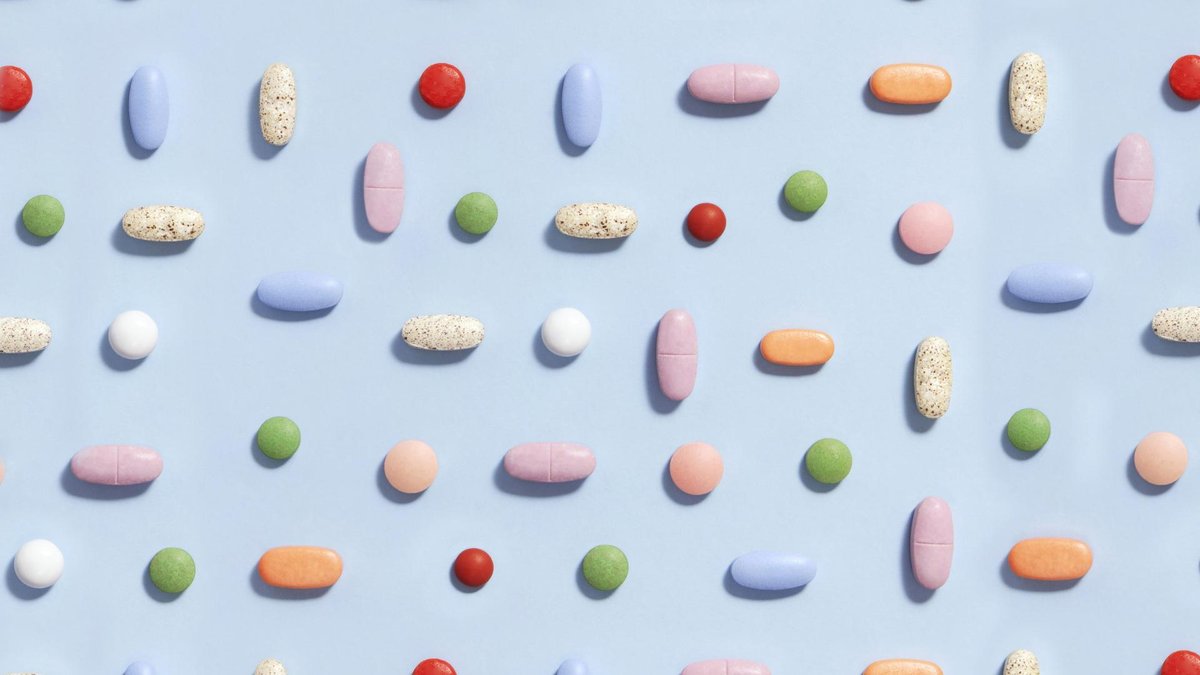
Can lifestyle changes help reduce glaucoma risk? Join us as glaucoma specialist Jullia A. Rosdahl, MD, PhD, discusses how diet, exercise, sleep, and other non-drug interventions may impact eye pressure and overall eye health. Learn about the latest research on nutrition, supplements, and daily habits that could support vision preservation.
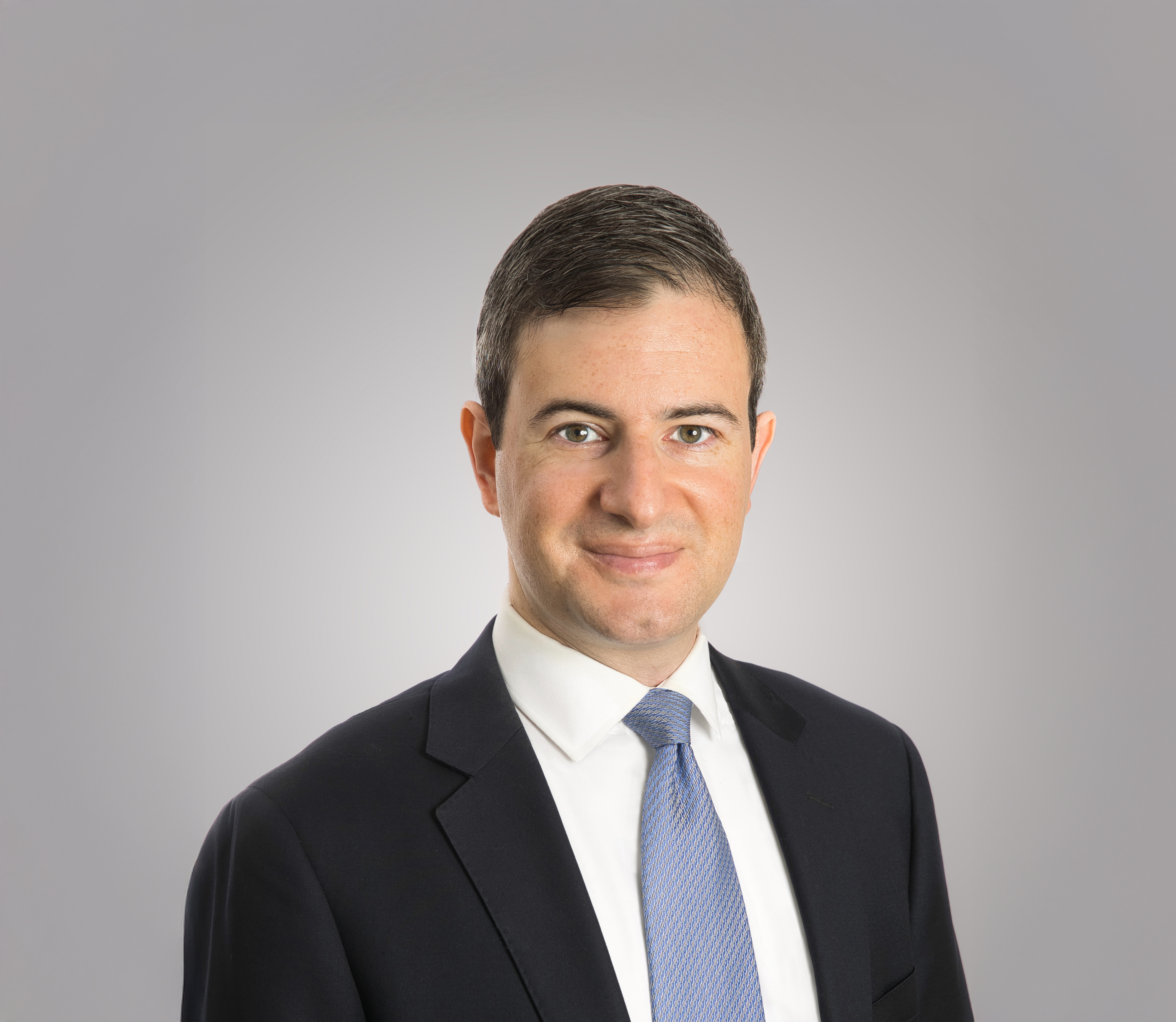
Join Dr. Lawrence S. Geyman as he outlines effective ways to find support for your glaucoma diagnosis.
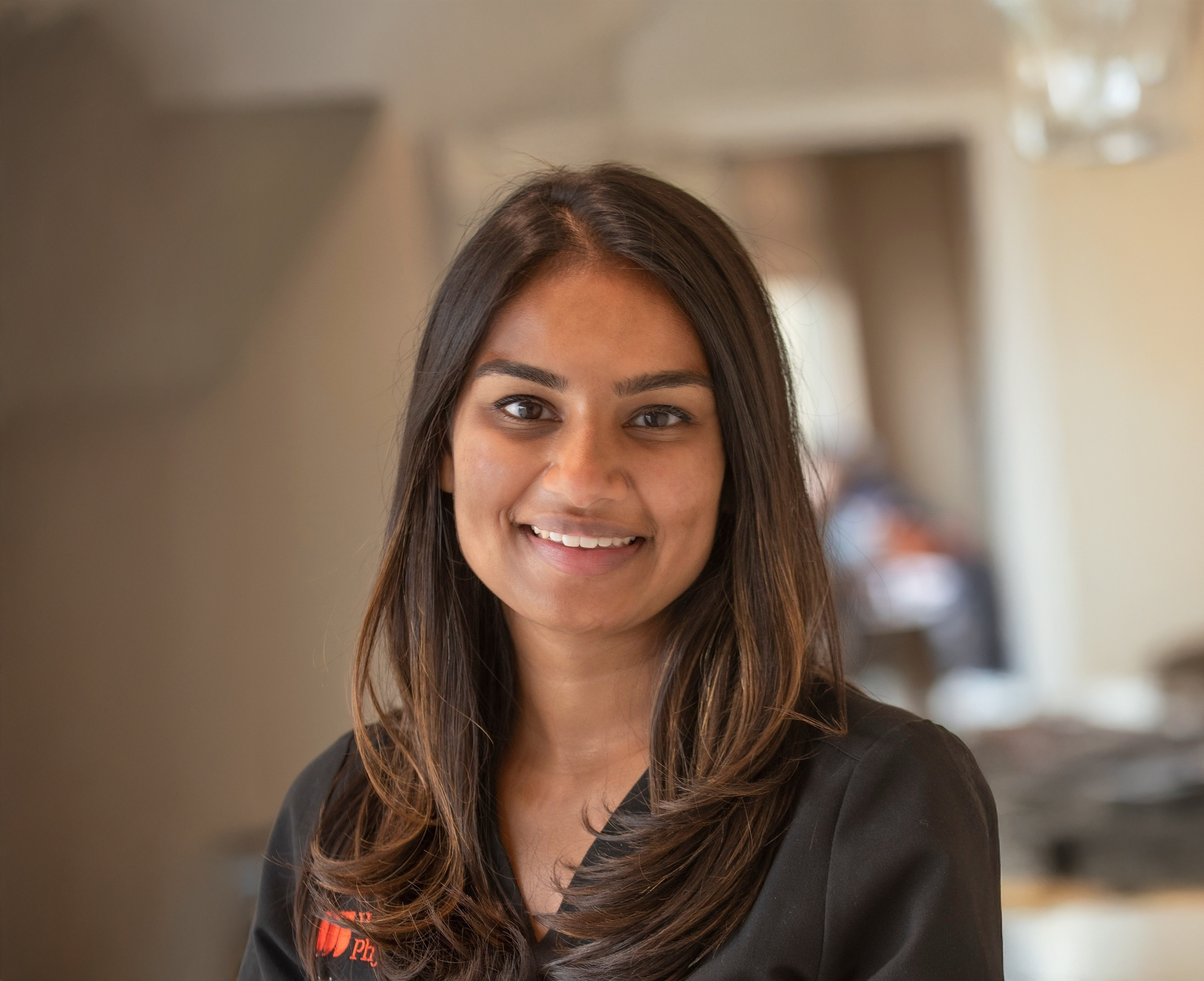
Learn about the similarities and differences between these two vision diseases, whether someone can develop both conditions at the same time, and how to reduce your risk.
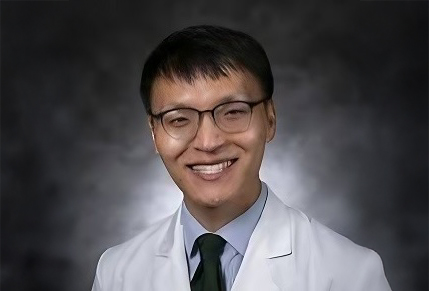
Join us for an insightful conversation with Dr. Jaehong Han about the different types of glaucoma, including open-angle, angle-closure, normal-tension, and more, discussing who is most affected by each and how treatments can vary.
